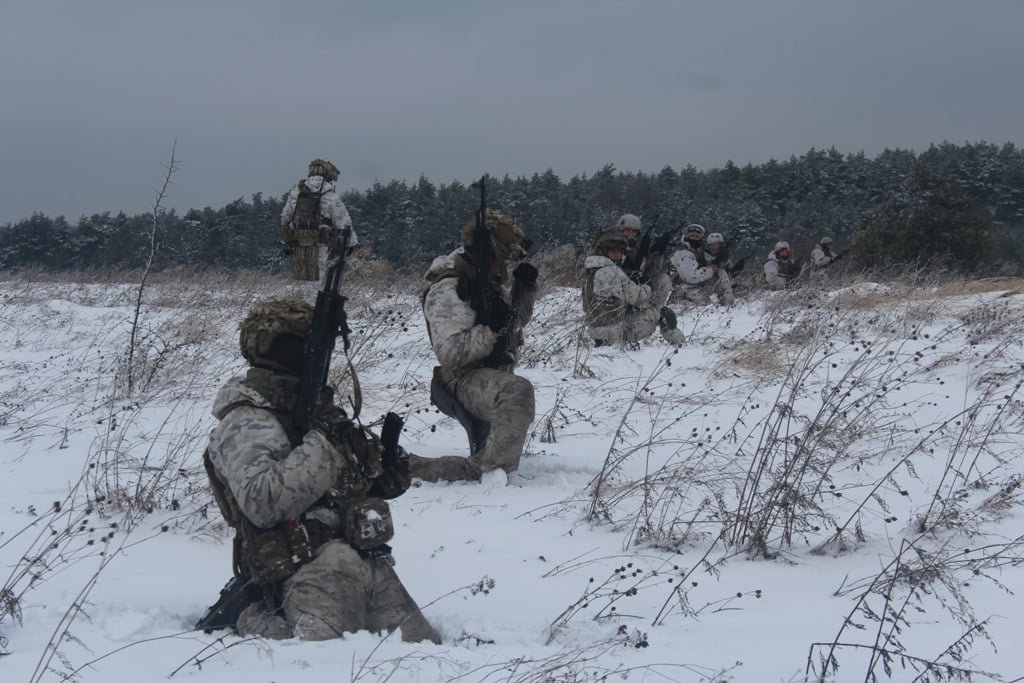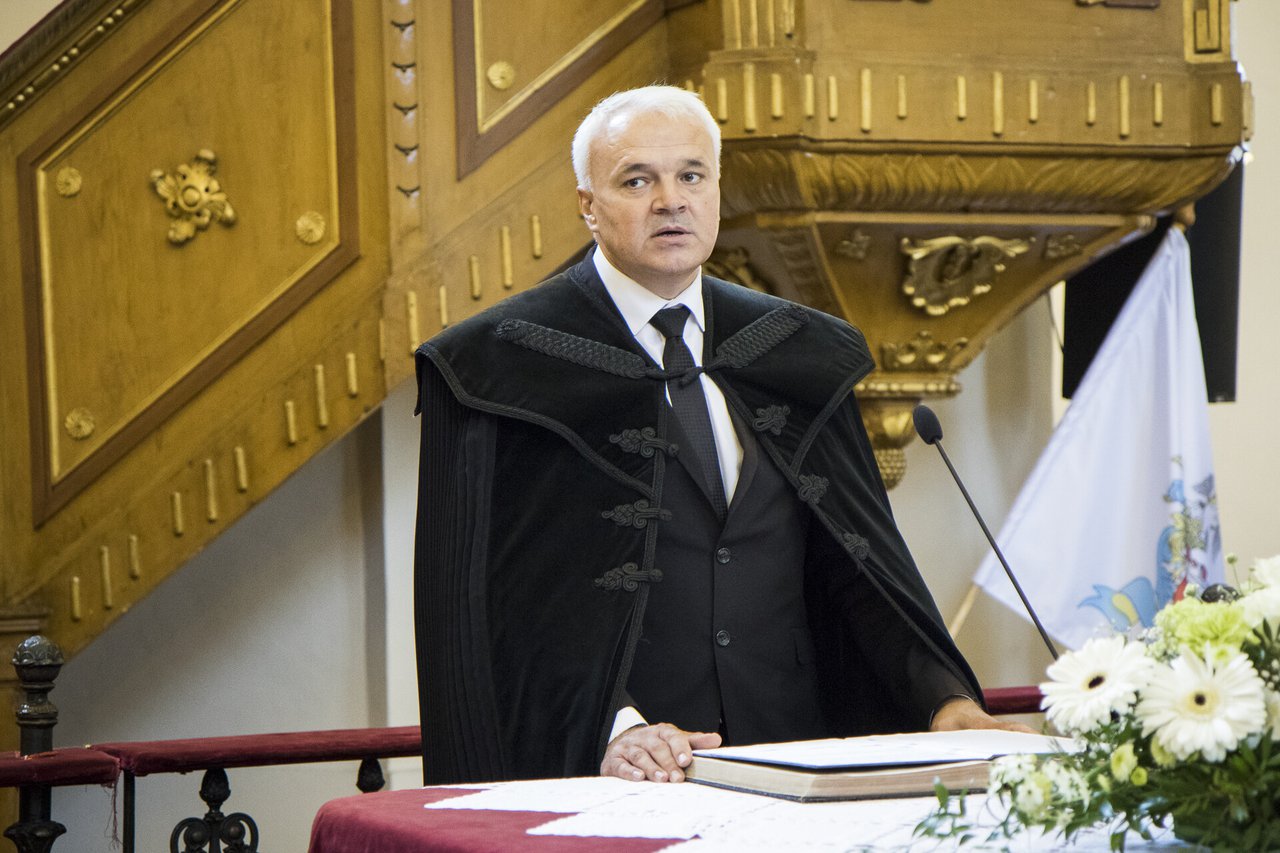Bishop Sándor Zán-Fábián, head of the Reformed Church in Transcarpathia, Ukraine, calls for prayer for peace in the country and stands for the peacful co-existence of all nationalities and relgious communities of the country. We asked him about the consequences of the critical situation, how much it impacts the life of the community in the Western part of the country. He said that it is not financial assistance the people of Transcarpathia do need from Hungary, but fervent prayer for peace.
The Ukrainian-Russian relationship is becoming increasingly tense, with the armies of the two countries facing each other on the border and even Russian troops conducting exercises in Belarus. Last week, Washington was expecting Russia to launch an attack on Ukraine on 16 February. This has been denied in Moscow and Ukrainian leaders have expressed doubts about the news. However, Ukrainian President Volodymyr Zelensky has declared 16 February a public holiday and a day of national unity, and called on people to display the national flag everywhere on Wednesday and to sing the national anthem at 10 a.m.

The offensive has failed, and the Russian Defence Ministry has continued to talk of withdrawing its troops from the exercise, while NATO member states are saying that they have information that even more Russian troops have arrived in the area of the Ukrainian border. Moscow says the talk of an attack is just Western propaganda. The Ukrainian leadership, however, has not breathed a sigh of relief because, in addition to the presence of a significant Russian force along the border, fighting has resumed with the breakaway republics in eastern Ukraine.
There are reports of exchanges of fire in the Ukrainian breakaway territories, with the Russian Ministry of Defence reporting on Monday that two Ukrainian armoured vehicles had crossed the border and engaged in a firefight with the Russian army, killing five Ukrainian soldiers.
The Ministry of Foreign Affairs and Trade and the Ministry of Defence have a theoretical plan to evacuate Hungarian citizens from Ukraine in the event of a war conflict, and Prime Minister Viktor Orbán said earlier that state agencies made preparations to receive refugees.
Bishop Zan: Peace Is The Most Precious Treasure
Perhaps we still can hope that the war will not reach our Hungarian brothers and sisters, because Transcarpathia is far from the hotbeds of war: the distance between Beregszász (Berehove) and Donetsk is the same as between Budapest and Brussels. Yet, Ukraine's crisis will also affect the lives of Hungarians in Transcarpathia. We asked Sándor Fábián Zán, Bishop of the Transcarpathian Reformed Church, about the impact of the tension between Ukraine and Russia on their lives.
How much do you feel of the tension in Transcarpathia?
Thank God, we don't feel too much yet, but we do witness a wave of emigration, which comes from central Ukraine and affects us as a transit region, at the time being. We also observe that the everyday life of the people has become even more uncertain, and far fewer people are planning their future, even their present here, and they are seeking opportunities to leave the country for abroad. This is of course also the case due to the energy crisis and other hardships we face.
Does this affects the region more in the long term, or are you aware of people who have packed their belongings ready to leave while waiting to see how a possible Russian invasion will affect them?
I don't know anybody yet around me who would be packed, but there are a lot of people asking: what will happen, how will we be affected by a real war, a war that is different from what has been ongoing anyway in Ukraine for eight years now. One that would affect our region directly. It is rather the fear of general mobilisation which prevails in our everyday life. I also know that some people are buying large quantities of food because who knows what will happen. What we observe is that it is not only the wealthy who have been trying to get their money out of Ukraine, but also ordinary people. They are trying to invest their money, for example, in a bag of flour, because it is safer and better investment than trusting that money will keep its value.

Bishop Sándor Zán-Fábián
Do they receive any form of support, be it spiritual or material?
The majority does not receive any material support. People try to live somehow on their own income, which is not easy. A lot of people face serious financial problems because of the high energy prices and the insecurity, which prevents them to see any future for themselves. The elderly have already had a very difficult time, their pensions are very low. And food prices are similar to those in Hungary. Medicaments, food and overhead costs are taking all their money. Practically, a retired person cannot even spend money on these three things, they often have to make a choice as to which of the three they can afford.
So the prices are the same as in Hungary, but the salaries and allowances represent a fraction of those in Hungary.
Yes. If someone has a monthly pension of around 90 EUR, that's a big deal.
One can say that situation is anyway very precarious and devastating, and the thread of the war in the Eastern part of the country only adds to the problem.
That's right. People here have been struggling with difficulties for a long time. Even those who have jobs receive very low salaries. To name concrete figures; the average salary is less than 300 EUR. The minimum wage is now 6500 Hryvnia (about 200 EUR - ed.).
Is there anything we can do as Reformed brothers and sisters from Hungary to help?
We know that the solidarity and help from Hungary has not just started now, but there has been a serious support for long years. I would not increase the financial aid in the current situation, because we do not know yet what we would trigger in people. I do not want to create panic. What I see is that the responsibility and support which the Hungarian reformed community offered for our educational institutions - through the Carpathian Basin Educational Solidarity Fund - is well received by our institutions and they are grateful for it; the Hungarian government's support for social institutions, whether it is support for soup kitchens or other forms of financial aid, also helps a lot. At the moment, these provide the minimum that we need today. What will happen next? We do not know yet, because what we see is that the number of church members is decreasing day by day. So there is a great exodus, which is becoming a burden on those who remain, both in terms of caring for the elderly and educating the youth. Because parents who are leaving the country, send their children to our residential schools, from where they only go home every second week. This it is also a growing burden and a huge responsibility for us in times of emergency situation.
Assuming this responsibility for the education, upbringing and care for our children is a challenge, a tremendous task that falls on fewer and fewer shoulders. If the Reformed Church in Hungary were now planning any kind of donation campaign for the people of Transcarpathia, I would say: they do not need to do so now. The most important thing now is to pray, to pray that there will be no war.
Peace is the most precious treasure for us. We feel that God can change our destiny for the better, but we must turn to Him, we cannot make through and endure this without Him.
Peace Statement of the Reformed Church in Transcarpathia
The leadership of the Reformed Church in Sub-Carpathia issued a statement of peace already in 2014, protesting any form of violence and war, and striving instead for the peaceful co-existence of all nations living in Ukraine. The statement was sent to each congregation, to the leaders of Ukraine and Hungary, as well as European decision-makers.
Emergency Response of Reformed Church in Hungary and the Hungarian Reformed Church Aid for Ukraine
We all know what happened just few days after this interview was published. We live in another reality - for us that of fervent prayer and committed actions: our faith expressing itself through love.
Circular in Times of War: Stay Where You Are
Bishop Zan, just 5 days after this interview turned to the almost 100 congregtions of his Church pleaing them to stay and witness to the Gospel, care for the elderly left alone, for the internally displaced persons and refugees seeking refuge or on transit in Transcarpathia - Western Ukraine.